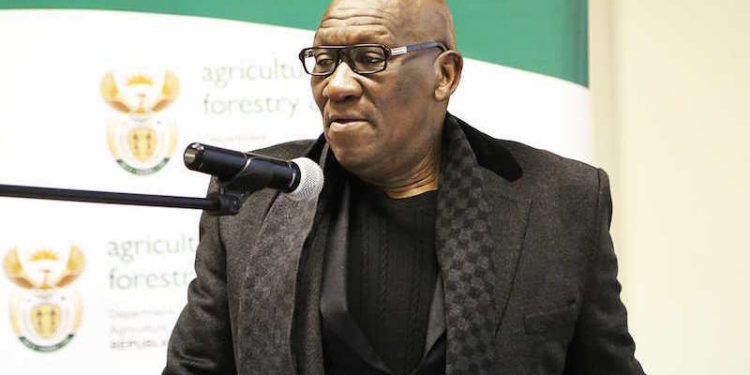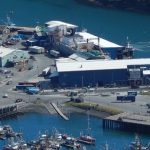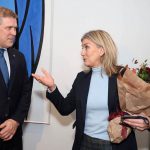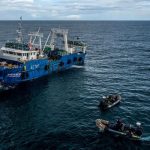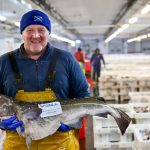On behalf of the South African government, Minister Senzeni Zokwana has signed a Memorandum of Understanding (MoU) with his Namibian counterpart, Minister Bernard Essau. This represents an agreement between the two neighbouring countries to work together in various matters concerning fisheries as the two countries share a common border.
South Africa, Namibia and Angola share access to one of the most productive waters in the world, the Benguela Current Large Marine Ecosystem (BCLME). The collaboration of the three countries is historic where international partners have funded a number of significant projects in the BCLME region. The collaboration was later formalised through Benguela Current Commission and now ratified into a Convention.
South Africa and Namibia share a border and therefore there are shared stocks and co-management between the two countries has always been important.
‘It is with greatest pleasure for me on behalf of South Africa to sign this MoU here in Namibia. Our President has made a clarion call for us “To grow South Africa" as part of the New Dawn in our country. Growing SA is intertwined with our commitments to grow the region and the Continent as a whole. This framework today captures this noble commitment of our country,’ said Minister Zokwana.
This ratified MoU is therefore a representation of collaboration which will result in best cooperation between both countries, and it covers a range of common subjects.
Concerning research and development, a specialised joint working group for evaluation, management and socio-economic study of shared marine resources will be established. The establishment of an appropriate arrangements for the management of shared marine and fresh water living resources, including the determination of the total allowable catch (TAC), technical conservation measures and other related measures.
Both countries will carry out joint research into cultivation of marine living resources indigenous to the Benguela Current Ecosystem and indigenous inland freshwater resources, using acquired technology as far as possible.
Joint actions will be pursued in safe guarding our oceans to reduce and eliminate the scourge of illegal, unreported and unregulated fishing. This will include joint surface and aerial marine fisheries surveillance patrols; share assets used for the purpose of sea patrols; joint observer programme to ensure compliance to those authorized to fish.
As the Benguela Ecosystem presents a myriad of opportunities which require skills and experience, agreement has been reached that an extensive joint training operation on shared monitoring platforms, with special focus on youth and women will be undertaken.
Both countries agree to co-operate on capacity building on compliance systems on sanitary and Phytosanitary Standards (SPS), including food safety systems, in fisheries and aquaculture. Both countries will also work together on policies, regulatory frameworks and implementation of blue economy activities of mutual interest.

